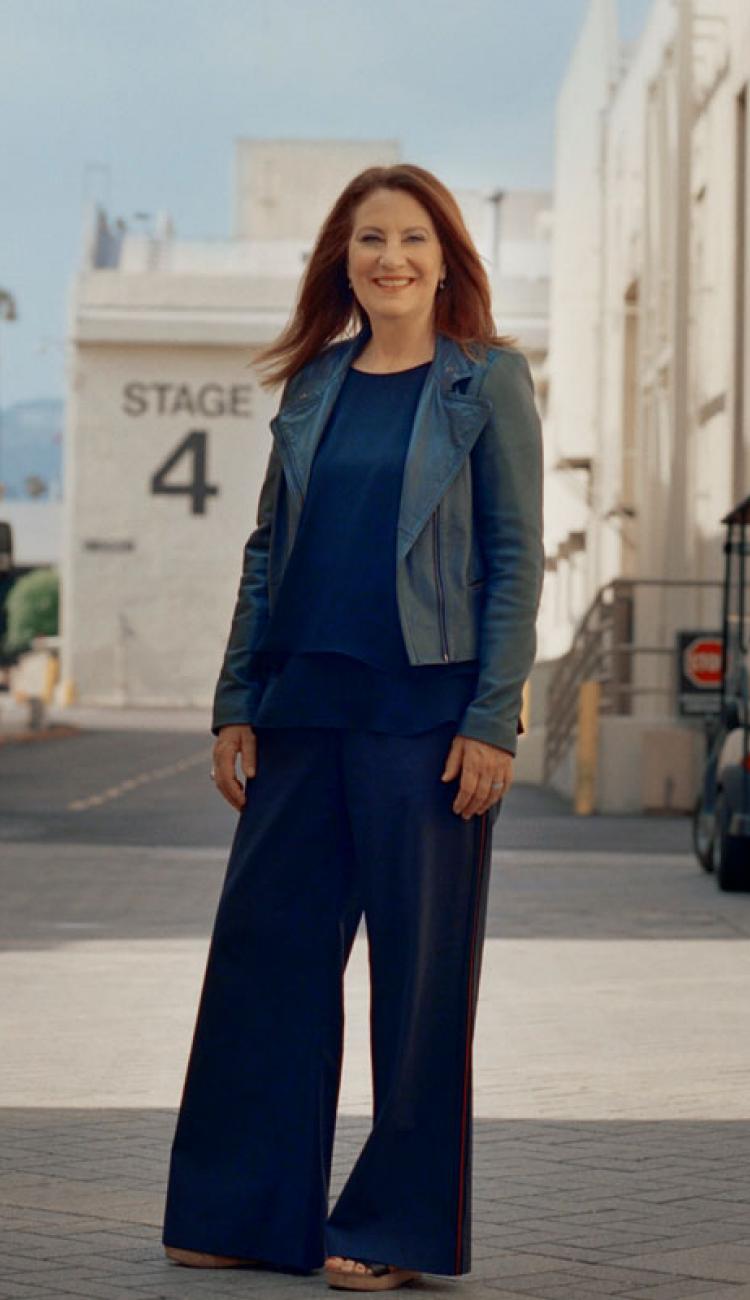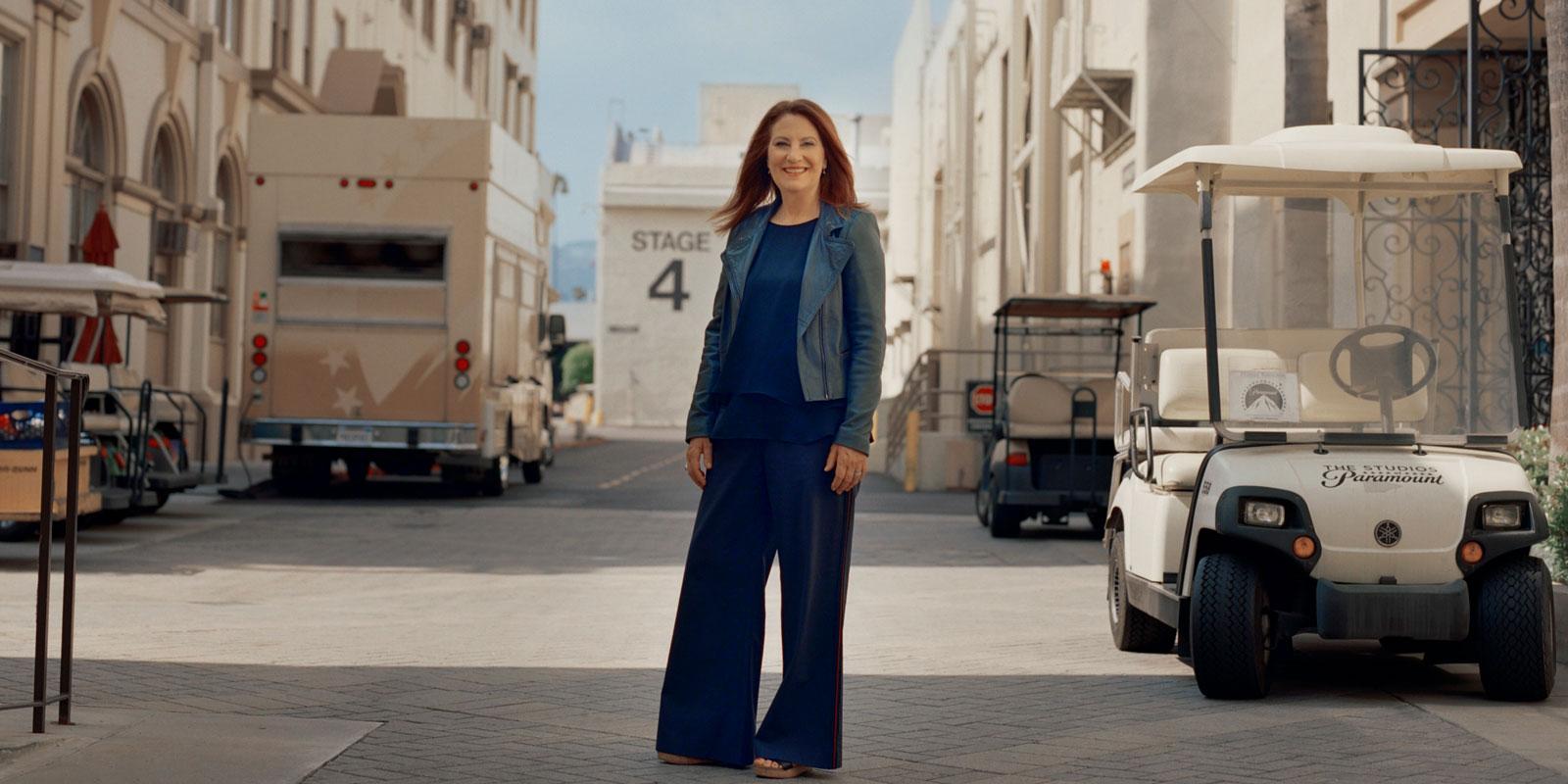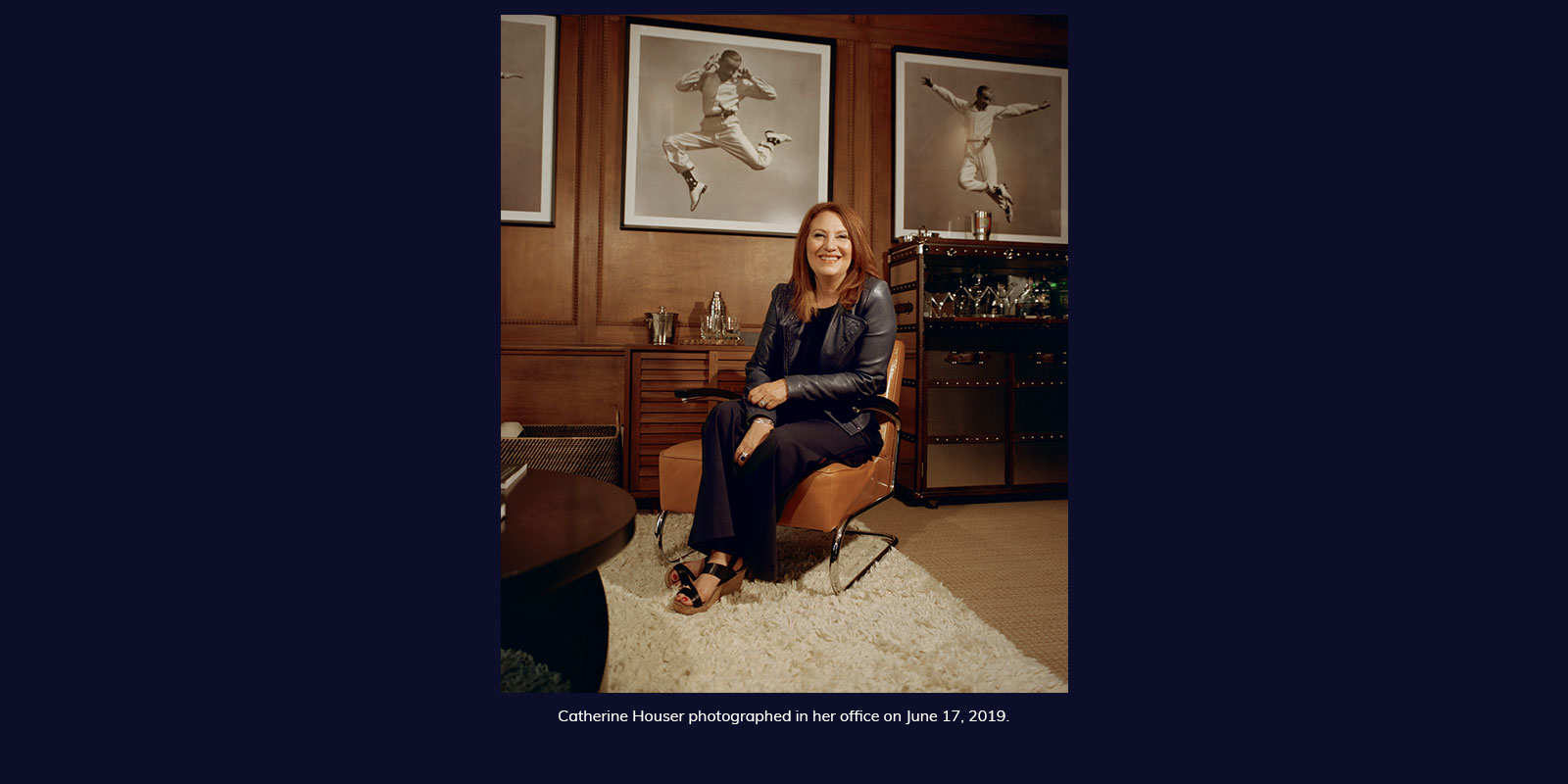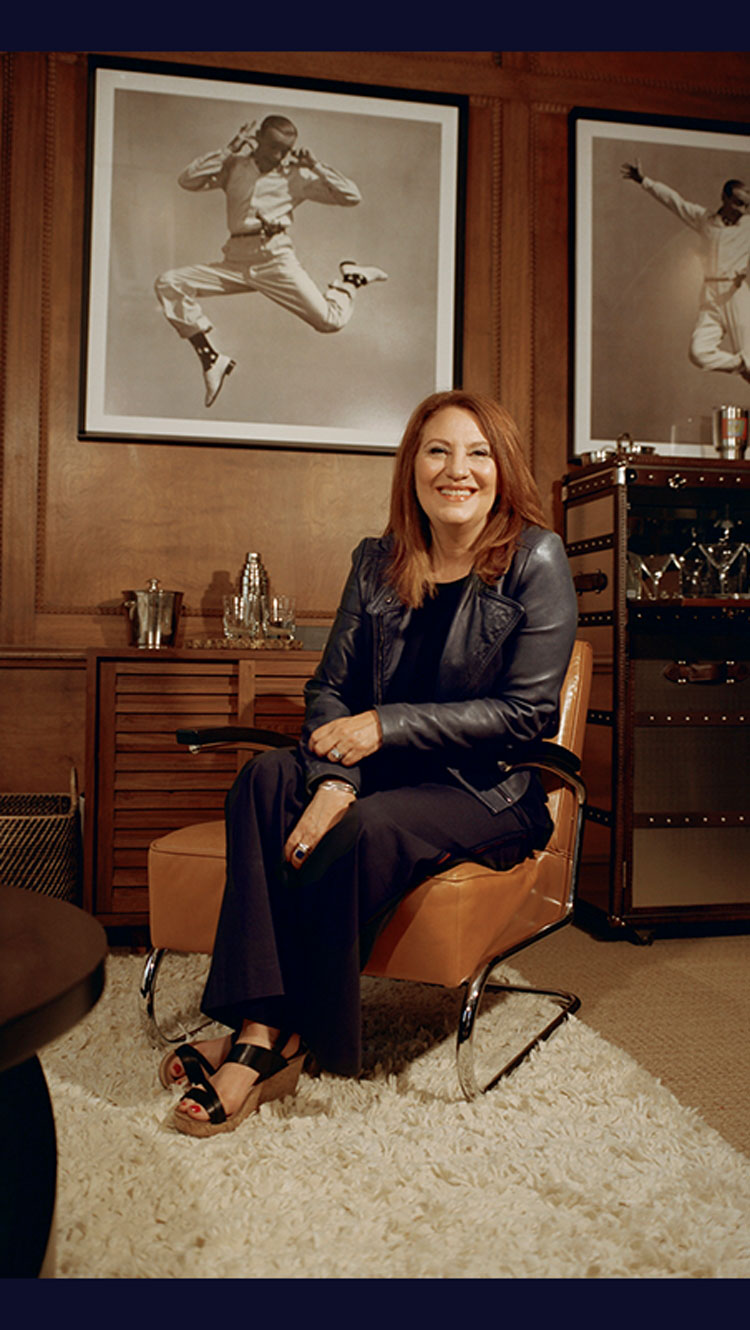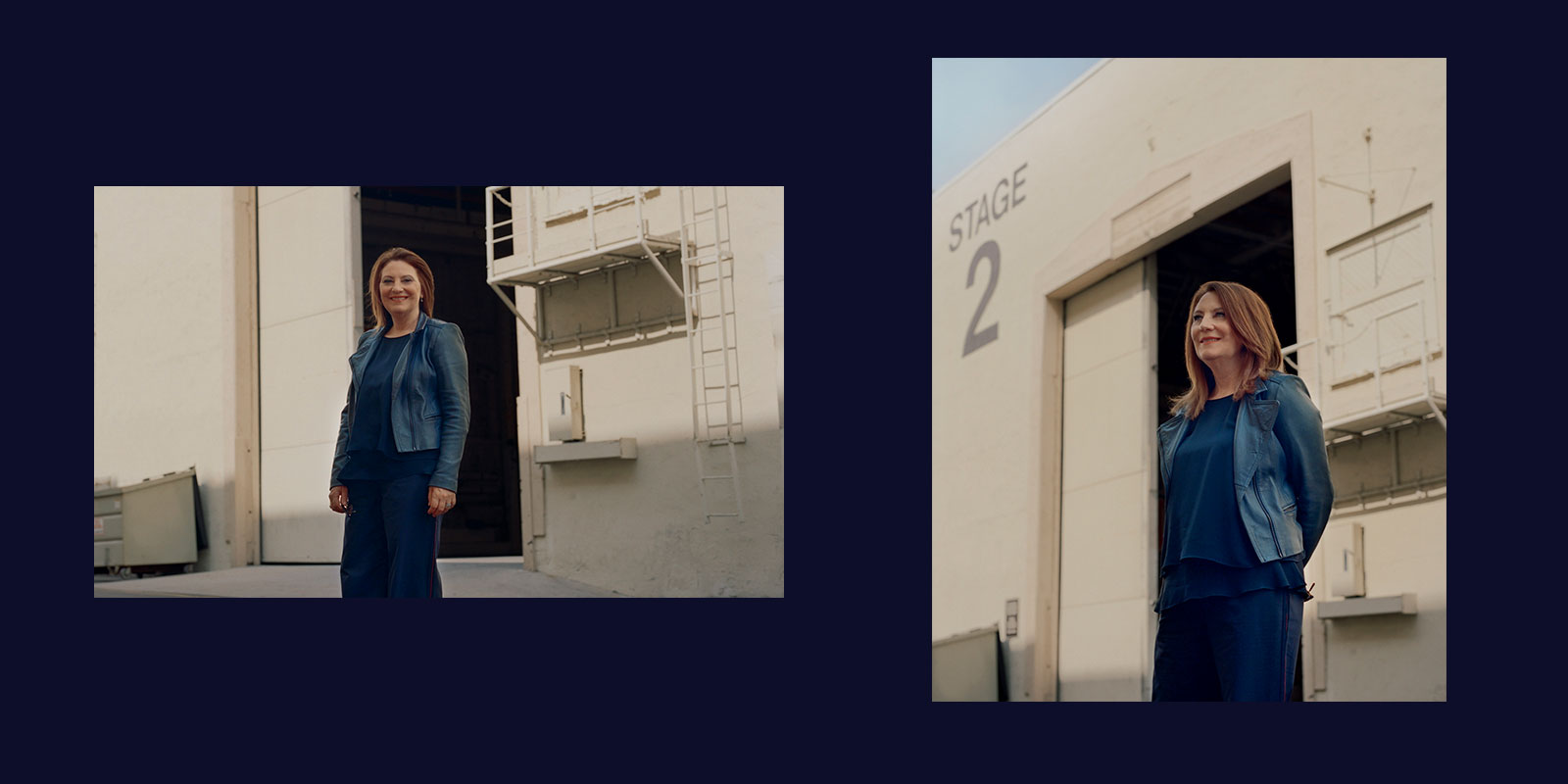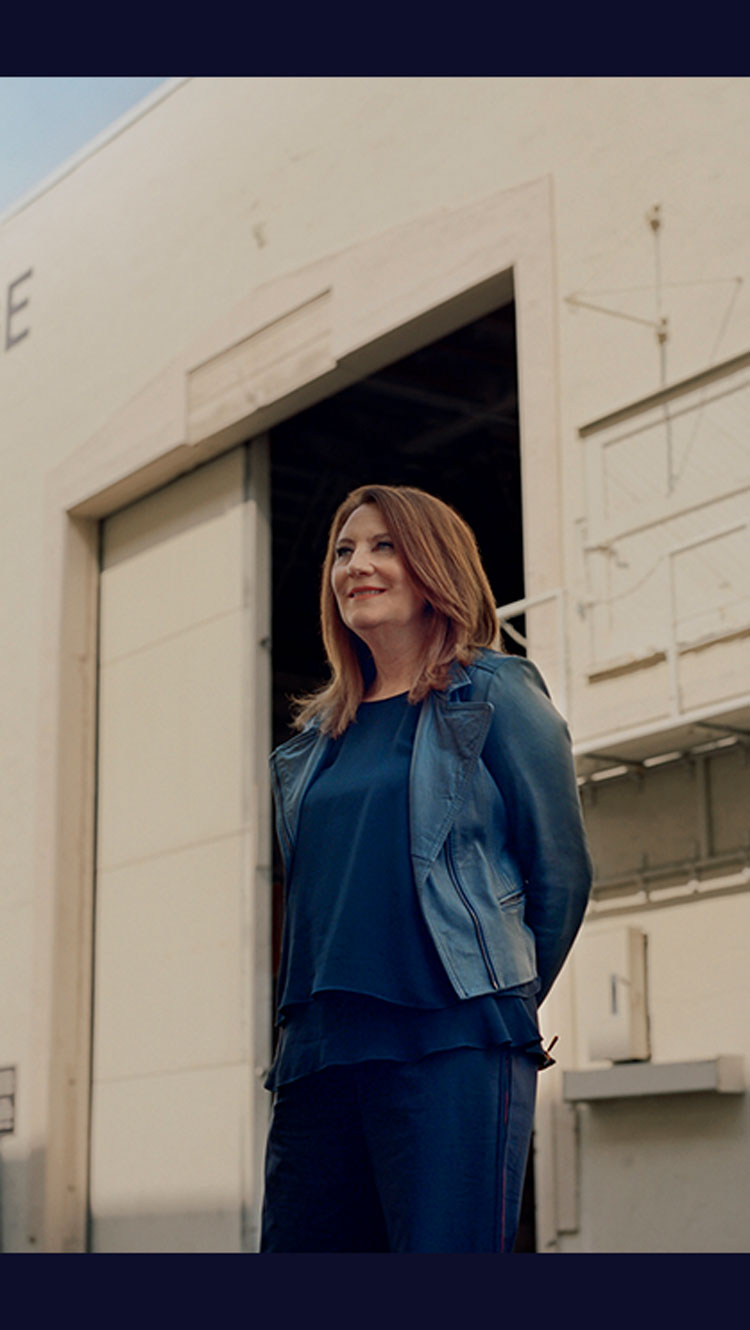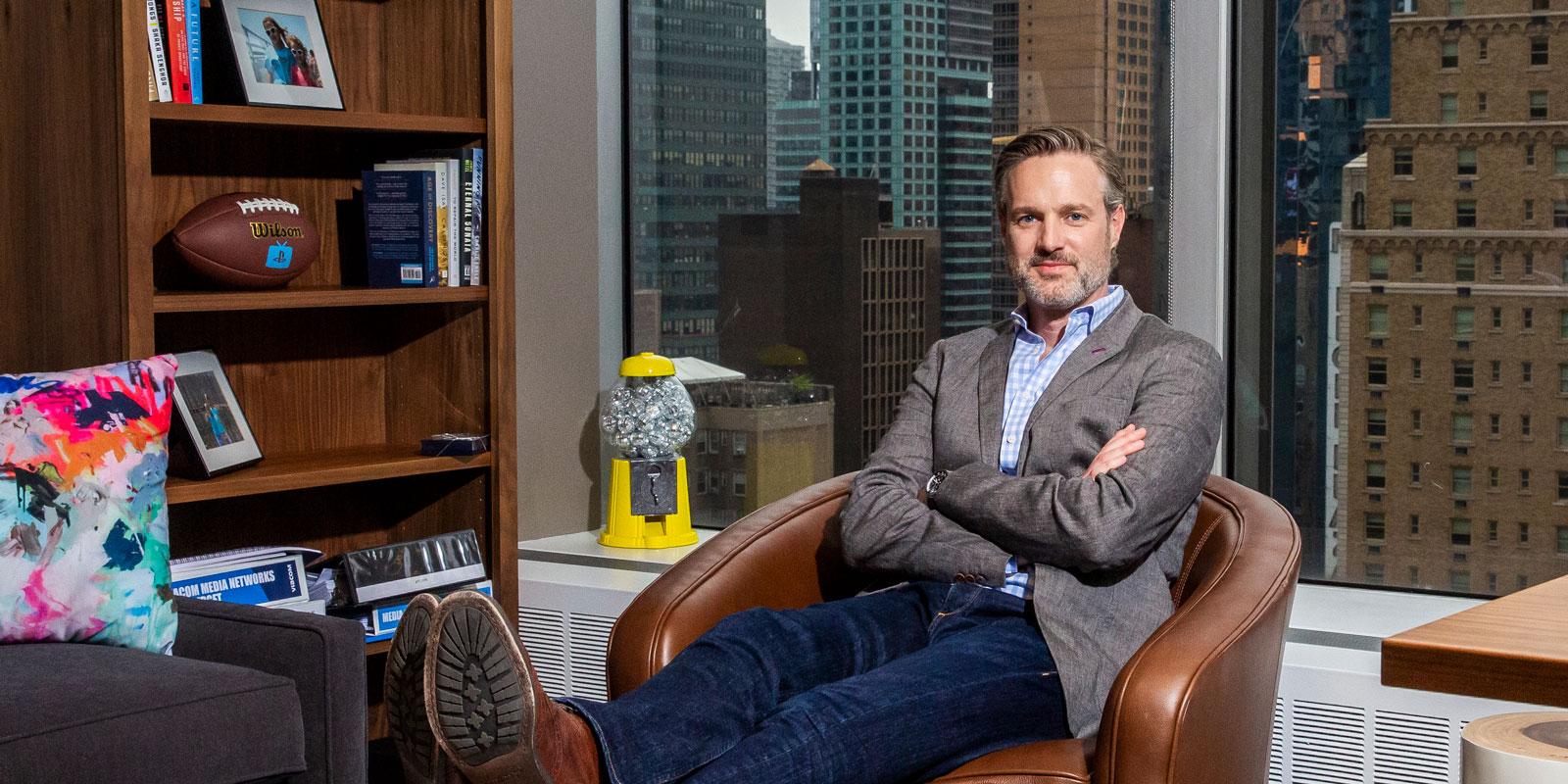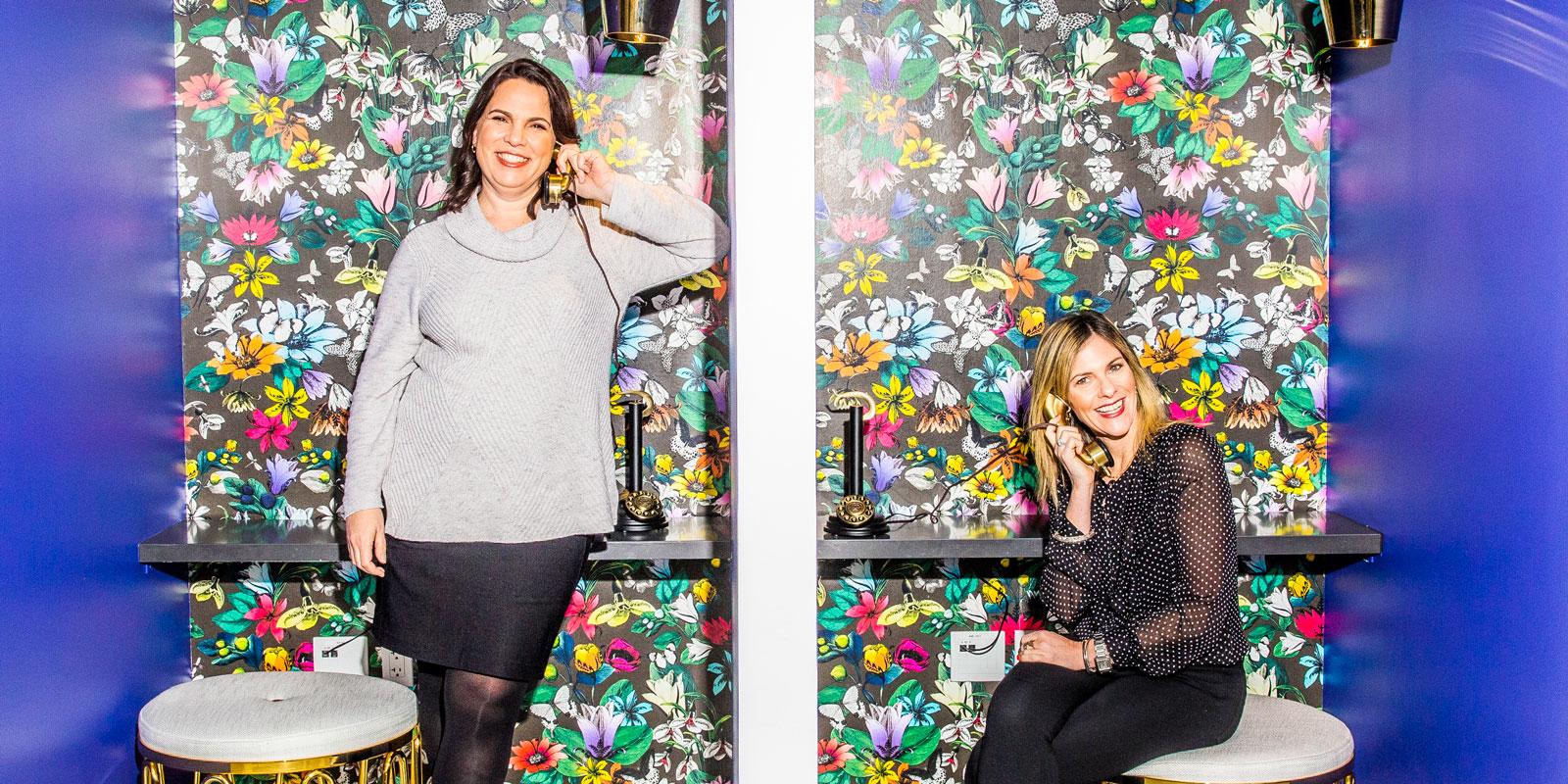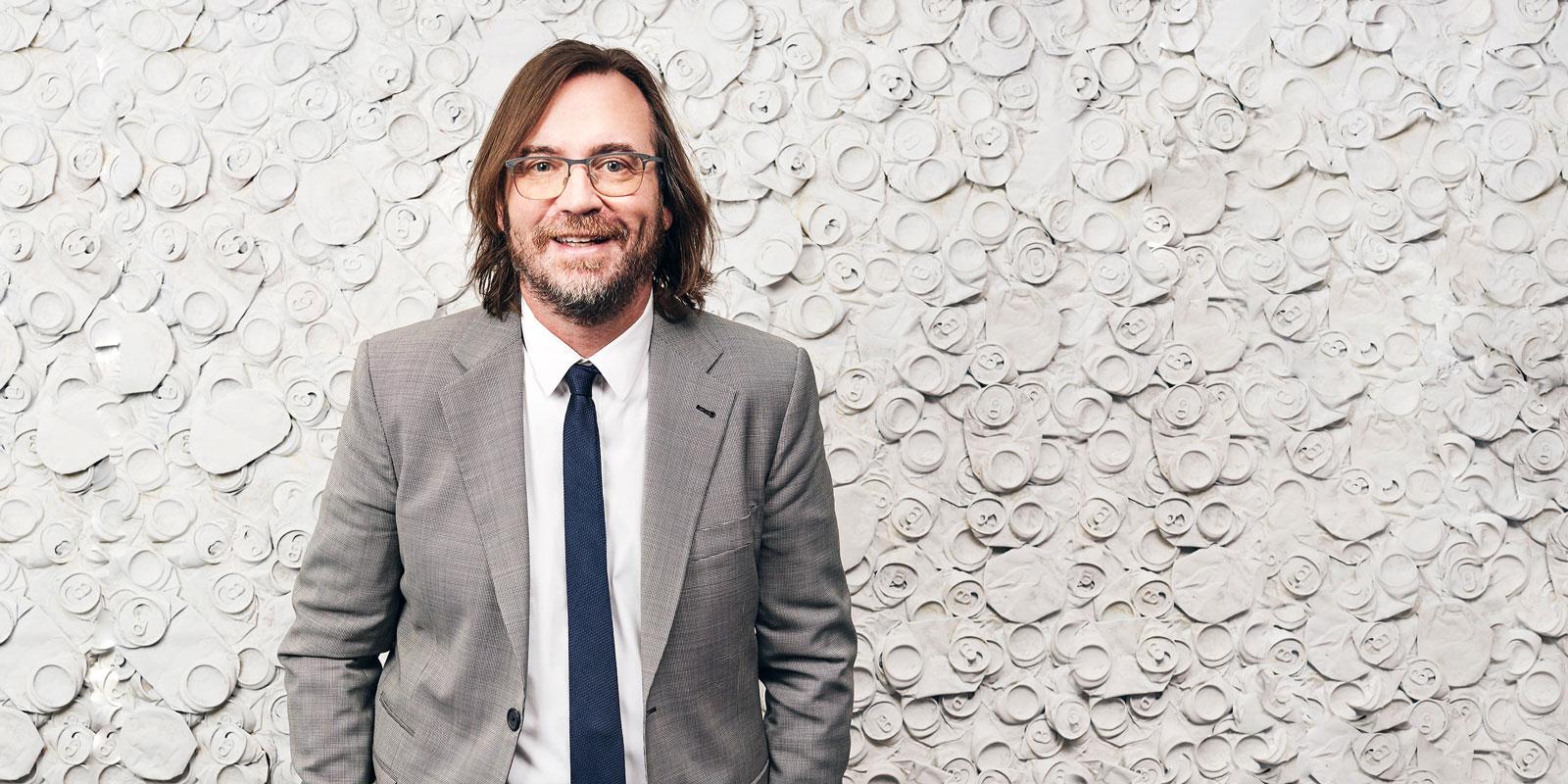Jun 28, 2019
The head of worldwide HR at Paramount Pictures discusses the art of attracting talent and the perils of networking over meals.
Our In the Office With ... series, gives Viacom executives the opportunity to reveal a little bit about who they are, how they lead, and what drives them in the day-to-day.
In her 35 years working in entertainment human resources, Catherine Houser has met a lot of famous people. But it was Anita Hill who left her starstruck. Houser, Paramount Pictures' executive vice president of worldwide HR, was appointed last year to the Hollywood Commission on Eliminating Sexual Harassment and Advancing Equality, which is chaired by Hill.
Houser has focused on creating a safe, fair work environment for her entire career. Especially since she knows what it’s like to feel like you have to hide your personal life at work. Houser didn’t share with co-workers that she’s a lesbian while at previous jobs because she didn’t think she would be accepted.
That changed when she came to MTV.
“It's pride month, so I'll just put this out there,” she says. “I’ve been with Elizabeth for 25 years and when I came into MTV Networks, because of the boss I had at the time and just MTV Networks overall, I felt very comfortable. I've also always felt very supported here.”
That’s what she wants for the 1,700 Paramount Pictures’ employees. Houser has been in her current role for five years after working in HR for Viacom on both coasts and is deep in what she calls a listening tour. She makes it a point to meet with employees at all levels over casual meals or coffee so they can discuss life at Paramount and how she and the HR team can help them meet their career goals.
Houser and I recently spoke about creating an ideal workplace and living with the spirits of Old Hollywood.
Tara Weiss: Human resources evokes thoughts of paperwork and job interviews. How do you see your department’s role?
Catherine Houser: We've worked hard on getting away from the stereotype where people make fun of HR, or they think we are the principal or the police. We spend a lot of time with our employees and I go on listening tours to talk to employees at all levels. I ask, ‘What is it that you're excited about working at Paramount? What's meaningful to you? What is something we can do to help improve our culture?’ We focus on their development and we work with them to help navigate their careers. Our focus is on helping people continue to grow and develop.
TW: What do you value when building your own team?
CH: Some might say I over-index on emotional intelligence but I see it as the big game-changer. It’s so important that we pay attention to relationships and how we're all working together. One of my favorite quotes is from Michael Jordan, 'Talent wins games, but teamwork and intelligence wins championships.'
TW: What is emotional intelligence and how do you detect it, particularly in job interviews?
CH: It's being respectful to your colleagues, being positive and collaborative. If you work this way with your colleagues, I believe you're going to build trust and influence. I’m lucky to have two great bosses, Fukiko Ogisu and Andrew Gumpert, who are both experts in this area.
TW: You’ve made Viacom your professional home. What was your first job at Viacom?
CH: It was something like 22 years ago, and I was hired to help build the West Coast office of MTV. There were approximately 20 of us in Santa Monica and it grew within the first year to about 300. We were building out production teams for MTV, VH1, TV Land, and CMT. Eventually, I also oversaw Nickelodeon’s animation studio and regional offices in Nashville, Chicago, Detroit, and Atlanta. That led to becoming head of HR for Judy McGrath, the former CEO of MTV Networks.
TW: Were you involved in hiring Jim Gianopulos, Paramount Pictures’ chairman, in 2017?
CH: No, I was kept in the process, but it was led by Bob Bakish. He made a great choice; Jim is an incredible studio chief. He is revitalizing and strengthening Paramount.
TW: Paramount Pictures was on the decline under previous management, but with the change in leadership, it's become a story of turnaround and growth. How has Paramount Pictures changed as a workplace under Jim and his leadership team?
"We've gone from black and white to technicolor in terms of culture and morale. People are holding their heads up and they're excited about the future."
CH: I was only here a couple of years with the former management. When I came in, I knew that we needed a lot of change at the leadership level. We've upgraded across the board with all the senior-level hires we've made in the last 18 months. We've gone from black and white to technicolor in terms of culture and morale. People are holding their heads up and they're excited about the future.
We also have a relatively new creative group with Wyck Godfrey, who is head of creative for our theatrical team, Mireille Soria, head of animation, and Nicole Clemens, head of Paramount Television. There is a great new marketing team with Marc Weinstock and Mary Daily. We have people that are respected internally and externally.
TW: Do these management changes make it easier to attract talent?
CH: Yes. It's still very competitive. We're in Hollywood, so we're surrounded by the other studios. But I am really pleased to say that people are excited about Paramount. Jim, Wyck, Nicole, and Mireille have incredible talent relationships and our programming has also changed as a result. They have worked hard to bring in new, different point-of-views. This message is out, which helps us attract employee talent and talent for our film and television business.
TW: What do you mean by different point-of-views?
CH: There is a shift where there are films for everyone versus just the male-oriented films that were made in the past. A Quiet Place and Rocketman are good examples. We also have the Paramount Players division, which works with all of our channels and gives us an opportunity to create more diverse programming.
Small Talk
Morning routine: My alarm goes off, or I get a nudge from Clementine, our almost three-year-old Golden Retriever, around 6:30 a.m. Then Clementine and I either go for a hike—I live up in the Canyon—or we do some pool time.
Evening routine: My partner of 25 years, Elizabeth, usually has a glass of wine waiting for me. Depending on how long the day was, it could be a martini. A wine day is when I get home between six and seven, and a martini day is when I get home between eight and 10.
On living in Carole King’s former home: We didn't know the history of it when we bought it. Before we knew, Elizabeth—who is a vocalist—kept saying ‘There's a great vibe here that works for me.' The seller’s realtor told us about Carole King living here for a long period of time. She shot several of her album covers here.
First job in the entertainment industry: I was an office manager for Merv Griffin when he was doing The Merv Griffin Show. He became a great mentor and helped launch my HR career.
TW: The #MeToo movement has shined a light on discrimination, underrepresentation, and harassment in Hollywood. Can you talk about that and how you’ve addressed it at Paramount Pictures?
CH: I'm particularly interested in helping to grow and develop women's leadership. So Jim Gianopulos was kind enough to put me as his delegate on the Anita Hill Commission. We're developing policies and procedures to address harassment in the industry, and figuring out how people can report it if they don't have access to HR or legal assistance. Hill's going to all the studios and networks to talk through the vision. It's fun when you work in a studio; there are tons of celebrities all over, but my heroes are really the social activists like Anita Hill and Gloria Steinem.
Finding excellent talent and different voices has always been important throughout my years in human resources. It's not a new concept to me. What's different is we're getting people's attention and the support we need to go out wider to source candidates. I feel there is real investment by our leaders to expand our talent pool and support multiple perspectives.
There’s also much more engagement from our employees. They’re seeing the importance of why we want all of these different point-of-views. Because again—it's been said over and over again—that reflects our audience. It's truly, truly the right thing to do on so many levels. And from just a practical level, it's important for our business.
TW: How do you work toward diversity?
CH: We need everybody's effort. One of the things that's changed, especially when the senior roles open, is that they tap us and talent acquisition to participate in finding candidates. It used to be, ‘I'm doing this, and this is what's happening.’ There was no consultation. They fell back to the ease of hiring somebody they've worked with before. We are also looking at how we retain our great talent, because, again, the war on talent is fierce out there.
And, like I said, I do a lot of listening tours. I've probably gained at least ten pounds since I've been here.
TW: Why?
CH: Breakfasts, lunches, and dinners to get to know people. I want to know ‘What is working? What is not working? What are your suggestions?’ Instead of surveys, I have a lot of meals.
Photography: Kelia Anne MacCluskey
